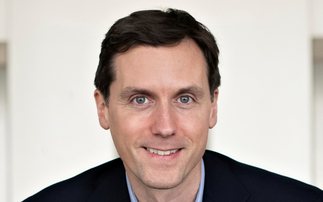
Royal London Asset Management’s Peter Rutter and Trevor Greetham on why new thinking may be needed to keep pension schemes on track
Pension funds in the UK are facing a plethora of challenges in today's investment environment, many of which have been exacerbated by the Covid-19 pandemic. With interest rates at historic lows and inflation surging, traditional investment pathways are no longer able to provide the level of income investors require in retirement. Against this backdrop, pension investors must look for more sophisticated investment solutions to achieve their long-term goals.
Peter Rutter, Head of Equities at Royal London Asset Management (RLAM), says: "The key challenge, both pre and post Covid-19, is a world of low financial returns. The expected future financial returns for a range of assets are lower than they have been for 10 or 20 years."
This problem is not new, arguably, but the massive amount of central bank stimulus has ensured that interest rates will remain lower for longer, while the reopening of global economies after 18 months of lockdowns has pushed up inflation. In the UK, inflation surged to 4.2% in October, up from 3.1% in September, while the US is grappling with inflation figures of around 6%.
Meanwhile, asset valuations are extremely expensive compared to historical averages. The Shiller PE ratio for US equities, for example, is nearly as high as in the days preceding the dot com bubble of the late 1990s. Sovereign bond yields in developed countries, meanwhile, are hovering near historic lows.
Seeking sophistication
With these challenges in mind, Trevor Greetham, Head of Multi Asset at RLAM, explains that a simple balanced fund can no longer meet investors' needs. "A 60/40 balanced portfolio is very reliant on the future performance of the US technology sector and gilts," he says. "That kind of vehicle did really well in 2020 because tech and gilts did really well. With inflation and interest rates on the rise, we think it will pay to be more broadly diversified."
In such an environment, Greetham believes investors will be better off using solutions that offer greater diversification across asset classes, such as commercial property and commodities, which are more resilient to inflation. He sees it as potentially dangerous to respond to the current low interest rate backdrop by going ever further up the fixed income risk spectrum. "We have seen rapid growth of illiquid parts of the fixed income market, such as leveraged loans and infrastructure debt. These offer a better yield than gilts, but investors face potential problems in terms of credit losses when the next recession comes along," Greetham says.
Past performance is not a guide to future performance. The value of investments and the income from them may go down as well as up and is not guaranteed. Investors may not get back the amount invested.
Click here to read more on how pension schemes can keep on track in a new age of uncertainty.
This post was funded by Royal London Asset Management.
IMPORTANT INFORMATION
For Professional Clients only, not suitable for Retail Clients. This is a financial promotion and is not investment advice. The views expressed are those of the authors at the date of publication unless otherwise indicated, which are subject to change, and is not investment advice.






